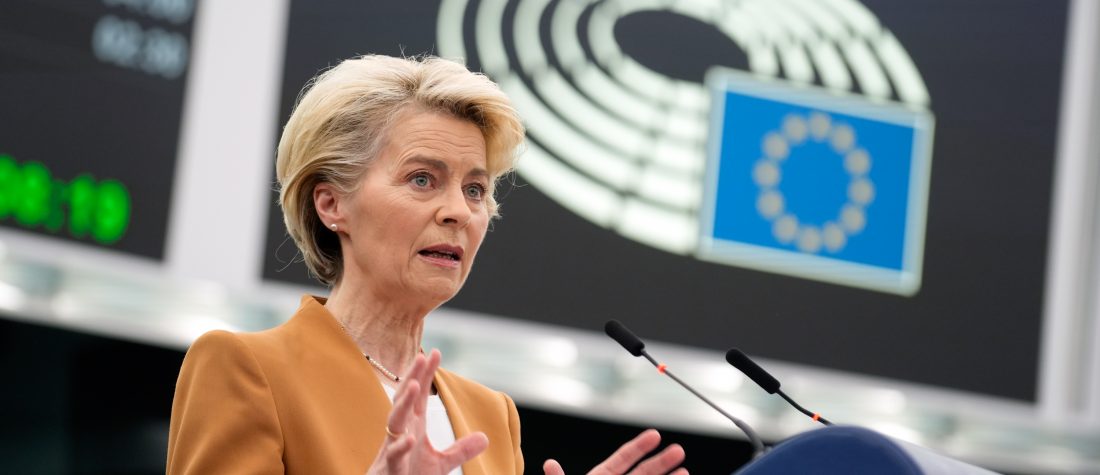With European elections now less than 12 months away, political parties across Europe have woken up to the reality that the Green Deal’s proposals will increase costs, lower investment, and endanger traditional jobs and industries across the continent.
The political shift has been well-documented – Frans Timmermans’ is heading back to Dutch politics; President Macron now supports a ‘regulatory pause’; a very public fight over the Nature Restoration Law happened just before the European Parliament’s summer recess.
Those are symptoms though, not causes. The cause of the falling support for the Green Deal is much simpler: it is not working. Imposing new regulatory-driven trade barriers on everything from steel to coffee to palm oil, is increasing prices for European consumers. Subsidising inefficient and unproven technologies like e-kerosene, and trying to kill off core European manufacturing sectors, is leaving Member States with a huge bill while undermining domestic jobs and investment.
Perhaps some of the pain caused could be justified if the Commission’s approach was shown to be essential for protecting the environment. The evidence now shows that in many cases, this is not happening.
The Green Deal’s ‘Deforestation Regulation’ imposes new trade barriers on selected commodities, because they are listed as responsible for deforestation. Many of the commodities such as coffee, cocoa, palm oil, and soy are used in food production. The cost of these essential imports will rise significantly. President von der Leyen and Commissioner Timmermans are directly asking Europeans to pay higher food prices in order to reduce deforestation in selected countries. The countries of production include Malaysia, Indonesia, Brazil, Argentina, and many in sub-Saharan Africa.
However – new data show that the basis for the Regulation is factually wrong.
The World Resources Institute (WRI), an independent non-profit focused on sustainability analysis, recently released a comprehensive analysis of global deforestation. A key conclusion was that “In Malaysia, primary forest loss remained low in 2022 and has leveled off in recent years.” Other countries were similarly praised, even though their commodities – like Malaysia – are targeted by the DeforestationRegulation.
To translate this into EU policymaking language: the Regulation is focused in the wrong place. If Malaysia is not a driver of deforestation according to the independent data, then why is the EU picking a fight over deforestation? The commodities targeted in the Deforestation Regulation – including rubber, palm oil, coffee and cocoa – are produced to a large degree in southeast Asia, with Malaysia a prominent supplier to EU markets.
Other independent data sources have also criticised the Regulation. Data from Global Forest Watch (GFW), an online forest-monitoring NGO, reached the same conclusion. Liz Goldman, senior geographic information system research manager for GFW, told The Guardian: “From a data point of view, I think Indonesia and Malaysia should be included as success stories. They have been for a number of years now”.
The WRI report specifically warns the Commission that its Deforestation Regulation is poorly-targeted, with a senior WRI official explaining that “palm oil is no longer a driver of deforestation. The EU should be much more careful in trying to implement the regulations.”
The contrast between the EU’s stated policy, and the lessons from the independent data, is striking. The scale of the misjudgement neatly encapsulates why there is increasing concern around the Green Deal’s direction. Are the same basic mistakes about facts and data being made in the Carbon Border Adjustment Mechanism (CBAM)? Or the Nature Restoration Law? Or the Sustainable Aviation Fuels plans?
This is not an esoteric debate. These regulations have real consequences for millions of families across the EU who are struggling with inflation and the cost of living.
Passing regulations that increase the cost of production of essential food items worsens inflation and raises food prices. Picking arbitrary winners in the energy marketplace crowds out innovation and investment, and costs jobs.
The future of the Green Deal needs to focus on reality: delivering a climate transition that lowers, not raises, inflation – and helps, not hurts, ordinary hard-working citizens across Europe. The current approach is stuck in the past, and is not working.
Michiel Hoogeveen is a Dutch politician and Member of the European Parliament


